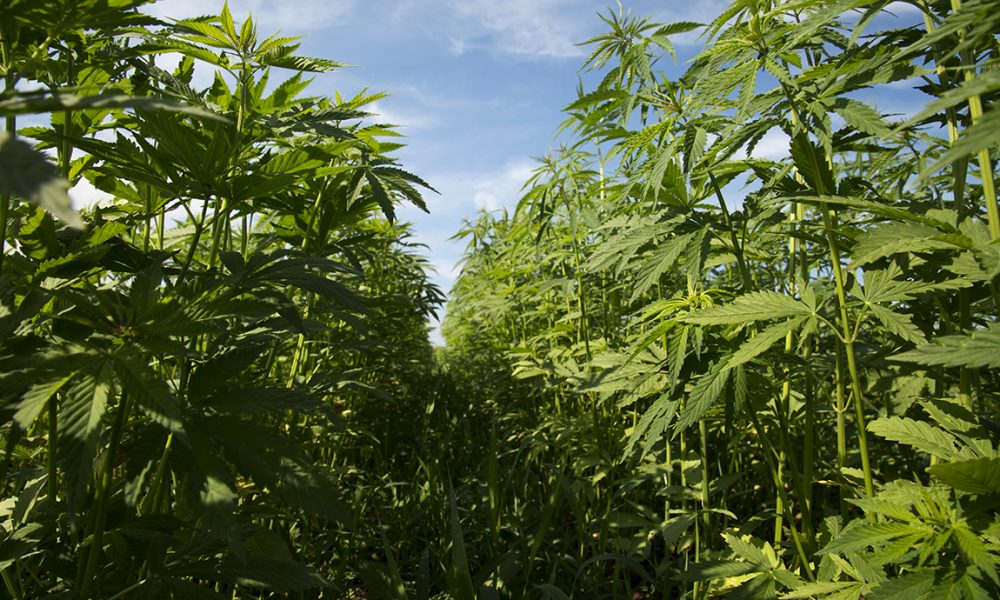“I think there should be some regulation, and I think that what this calls for is a slight change in business model as opposed to a complete closure.”
By Mitch Perry, Florida Phoenix
Ashley Guy runs a smoke shop in Tallahassee. She says she’s thrived since she moved from Seattle to Florida five years ago, with profits of more than $5 million from the sales of cannabis hemp products. But if a new proposal in the Florida Legislature passes, “this would just decimate business” she said on Tuesday.
She added that if the caps on THC—the compound in the plant associated with getting you high—on hemp products were imposed, customers would simply buy multiple packages of “gummies,” or would buy higher-dose products online from other states.
Guy and other hemp entrepreneurs are back in the legislature in 2024, fighting again to ensure they can continue to make a living in the hemp industry. But on Tuesday, lawmakers in a committee decided to impose restrictions on hemp products and substantially regulate the hemp market in Florida.
That was met with strong opposition by members of the industry, but nonetheless, the legislation (SB 1698) passed unanimously in the Senate Agriculture Committee. (Keep in mind that lawmakers in the House and Senate need to agree to be able to pass the legislation.)
The measure is being sponsored by Polk County Republican Colleen Burton.
It would make a number of changes to the hemp industry in the state, which has operated legally since 2019, shortly after the passage of the 2018 U.S. Farm Bill. That bill made hemp production and distribution legal under federal law and allowed states to create such programs. The Farm Bill defined hemp as the cannabis plant with one key difference: hemp cannot contain more than 0.3 percent of THC.
The most lucrative part of the hemp industry has involved the production of biomass that contains cannabidiol (CBD), a non-psychoactive compound believed to treat health conditions like anxiety, stress, anxiety and inflammation.
Several changes
Burton’s bill attempts to make several changes to current law, according to a legislative staff analysis.
- It would set THC limits in hemp products to not exceed 2 milligrams per serving and 10 milligrams per container.
- It modifies the definition of hemp products that cannot be “attractive to children” to include containers displaying toys, novel shapes, animations, promotional characters, licensed characters or other features that specifically target children, or, for hemp extracted intended for inhalation, the addition of any flavoring.
- Requires that an organizer hosting a hemp event to provide the Department of Agriculture and Consumer Services with a list of the businesses selling or marketing hemp extract products at the event and verify that each business is only selling hemp products from an approved source. The event organizer must ensure that each participating business is properly permitted.
- Says that hemp extract may only be manufactured, delivered, held, offered for sale, distributed or sold in the state if it meets a number of requirements.
Speaking in support of the proposal was Dr. Justin Arnold, the medical director of the Florida Poison Information Center based in Tampa.
He said the bill would have a lasting and life-saving impact on Floridians across the state, and that in the past few years, the three poison centers located in the state “have watched exposures to hemp extracts result in more harm than ever, particularly in our children.”
Speakers blast the proposal
But the overwhelming majority of public speakers blasted the proposal, saying it could potentially cripple the burgeoning hemp industry in Florida, and urged lawmakers to kill it.
Vinnie Seudath, with the company Kushy Pies, said it was “arbitrary” for lawmakers to limit the THC dosage of hemp products.
“These limits would put a significant burden on businesses and stakeholders in the hemp industry,” he said. “[Regulating] such products would increase the production costs, limit the product options for consumers and hinder the growth of the hemp market, ultimately having a negative impact on the economic opportunities and consumer choice.”
Randy Rembert is a hemp farmer who says he’s just now starting to make a profit after nearly five years. He asked if the intent of the measure is to protect children, why aren’t child-proof protections being considered on hemp products? “Why don’t we put correct doses on bottles just like Tylenol. Just like Ibuprofen?”
Last year Burton and Manatee County House Republican Will Robinson originally produced a bill that set THC limits to not exceed 0.5 milligrams per serving size and 2 milligrams per container. After receiving harsh feedback from hemp entrepreneurs and advocates, the proposal those levels were raised to 5 milligrams per serving or 50 milligrams per package. Then the limits were dropped entirely, with the measure simply prohibiting hemp-derived products such as delta-8 THC from being sold to anyone under the age of 21.
But lawmakers seemed determined to set such limits this year.
Pinellas County Democratic state Sen. Darryl Rouson said he understood the concerns of the members of the hemp industry but didn’t completely buy the idea that they’d go out of business if the proposal were to become law.
“I hear that this will eliminate small businesses and require thousands of them to close,” he said. “I do reject that notion. I think there should be some regulation, and I think that what this calls for is a slight change in business model as opposed to a complete closure.”
Burton said it was the Legislature’s job to consider the safety of all Floridians—children and adults—and that it superseded the bottom line for the hemp industry.
“We have a greater obligation to the health and safety of Floridians than to business models that are currently undertaken here in Florida,” she said.
This story was first published by Florida Phoenix.
Hemp Industry Pushes Congress To Hold FDA Accountable With Hearing On CBD Regulation Inaction
Read the full article here









